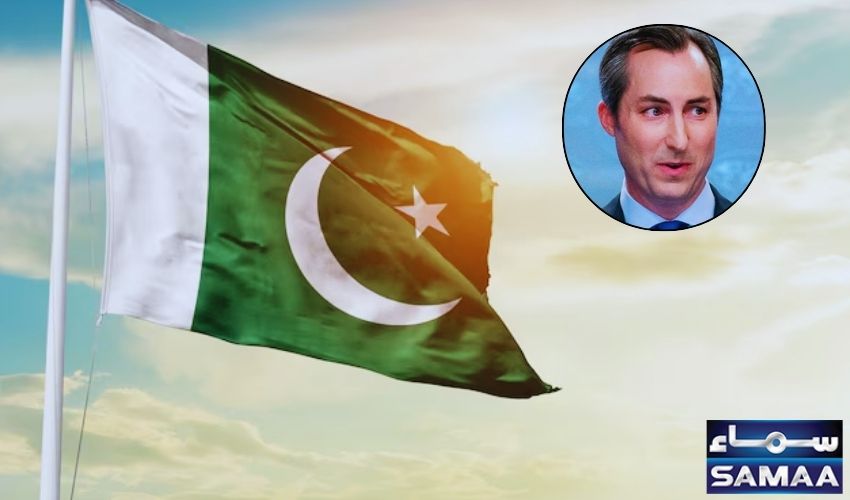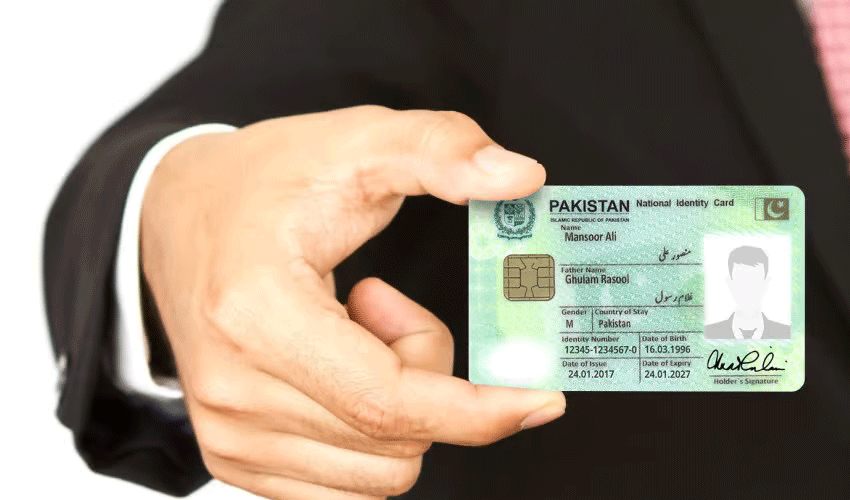Every time there’s political drama in Pakistan, you can bet the U.S. has a comment ready. The recent unrest in Pakistan is no different. With rising political tensions, U.S. State Department spokesperson Matthew Miller recently urged restraint and peaceful protests in response to the ongoing situation. This has raised the recurring question: Why does the U.S. always seem to weigh in on Pakistan's internal matters?
The U.S.’s frequent reactions to political developments in Pakistan have sparked much debate. Some argue that these responses are driven by genuine concern for stability and human rights, especially given Pakistan's strategic importance in the region.
Others believe that the U.S.’s involvement is more about its own geopolitical and economic interests in South Asia, as Pakistan’s political landscape can significantly impact regional security, particularly with regard to Afghanistan, India, and its relationship with China.
Whether it's about promoting democracy, ensuring peace, or protecting broader interests in the region, the U.S. has consistently made its voice heard on Pakistan’s political affairs, and it shows no signs of stepping back from this role.
Historical context
The U.S. and Pakistan go way back. During the Cold War, Pakistan was America’s go-to ally in the region, and later, it became a key player in the War on Terror. Over the years, the relationship has been rocky, but Pakistan’s importance hasn’t faded. That’s why the U.S. still keeps a close watch on what goes on here.
Despite periods of strained ties, Pakistan’s geopolitical significance has ensured it remains on the U.S.'s radar.
Geopolitical interests
Let’s face it: Pakistan’s location is prime real estate in geopolitics. It borders China, India, and Afghanistan—countries that are always in the global spotlight. For the U.S., keeping an eye on Pakistan means keeping tabs on South Asia’s stability. Plus, with Pakistan and China working together on big projects like CPEC, the U.S. has even more reason to stay tuned.
Not to mention, but America sees China as a global rival.
Economic & military ties
The U.S. has poured billions into Pakistan over the years, from military aid to development programs. Even though that funding has slowed down recently, the U.S. still has a stake in what happens here. Political instability makes everyone nervous, especially when it could mess with American investments or security interests.
Human rights narrative
The U.S. often frames its comments on Pakistan in terms of human rights, democracy, and freedom of expression. For instance, in the recent unrest, Matthew emphasized the need for “peaceful protests” and adherence to “human rights”.
While such statements align with the U.S.'s global narrative, critics argue that they are selective and sometimes serve as a tool for influence rather than a reflection of genuine concern.
How Pakistanis see it
For many in Pakistan, the U.S.’s constant commentary feels like meddling. With a history of supporting military regimes and influencing politics, it’s hard for people to see these statements as purely diplomatic.
Others, however, see them as part of normal diplomatic behavior and argue that the U.S. is just doing what any global power would—keeping an eye on a key partner.
Global context
The U.S. doesn’t just comment on Pakistan; it does this everywhere it has stakes—be it Venezuela, Ukraine, or even China. But its interest in Pakistan often feels more intense because of the shared history and strategic importance.
What it all means
At the end of the day, the U.S. talks about Pakistan because it can’t afford to ignore it. Whether it’s about keeping an eye on China, ensuring regional stability, or managing its investments, Pakistan matters.
Whether perceived as interference or concern, the U.S.'s interest in Pakistan is unlikely to wane, ensuring that its voice continues to echo in Pakistan's domestic affairs.
One thing’s for sure—this back-and-forth between the two countries isn’t going away anytime soon.



























